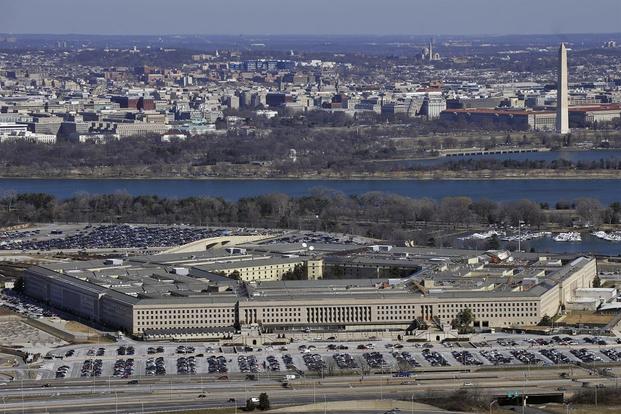The Senate Armed Services Committee resoundingly passed a defense policy bill Wednesday that authorizes $750 billion in Pentagon spending in fiscal 2020, establishes the U.S. Space Force and provides funds for the largest pay raise for active-duty troops in nearly a decade.
In a 25-2 vote following a day-long debate on the proposed legislation and the adoption of 298 of 433 proposed amendments, the committee passed provisions that address a number of personnel problems, allow for the purchase of new ships and aircraft, and support overseas contingency operations.
The bill supports roughly the same end strength as requested by President Donald Trump in his budget proposal, nearly 1.34 million service members, and gives them a 3.1% pay raise.
It permits $3.3 billion for the Navy, Air Force and Army National Guard to rebuild following flooding and hurricanes that destroyed installations in Nebraska, North Carolina and Florida.
It authorizes creation of a U.S. Space Force within the Department of the Air Force and would establish the current commander of Air Force Space Command as head of the U.S. Space Force.
And it allows the Pentagon to spend funds for 94 Joint Strike Fighters -- 16 more than the president's request, 12 new warships, 105 naval aviation aircraft and 65 armored multipurpose vehicles.
"In an increasingly dangerous world, Congress must show strong, decisive leadership to preserve peace through strength and protect freedom-loving Americans. This year's National Defense Authorization Act keeps us on the course started last year -- continuing implementation of the National Defense Strategy, restoring our combat advantage and supporting our warfighters," said Committee Chairman Sen. Jim Inhofe, R-Oklahoma, in a news release.
The bill illustrates the committee's interest in research and development, allowing more than $1.4 billion above the administration's request and allocating funds for supersonic and hypersonic weapons, missile defense and naval research.
It also seeks to influence the Pentagon's handling of issues that have plagued installations, including dealing with housing woes, eliminating purchases of firefighting foam containing hazardous chemicals, adapting the Uniform Code of Military Justice to improve sexual-assault reporting processes and prosecutions, and improving spouse employment.
The exact details of the many provisions weren't provided outside an executive summary of the proposed legislation, but Sen. Jack Reed of Rhode Island, the committee's ranking Democrat, said the bill will "help provide our troops with the tools and training they need today."
"This agreement bolsters national defense, invests in advanced technologies and cutting-edge capabilities, and includes needed reforms to support our forces in a dynamic and changing environment," he said.
The bill contains roughly $3.6 billion to reimburse the Pentagon for money used to build a wall along the Mexican border but did not provide additional funds as requested by the administration.
It also would allow the transfer of prisoners from Naval Detention Center Guantanamo Bay, Cuba, to the United States for medical treatment.
Senior committee staff members said that provision was included because the Navy hospital at Guantanamo doesn't have the capabilities to provide some specialty treatments.
-- Patricia Kime can be reached at Patricia.Kime@Military.com. Follow her on Twitter at @patriciakime.















